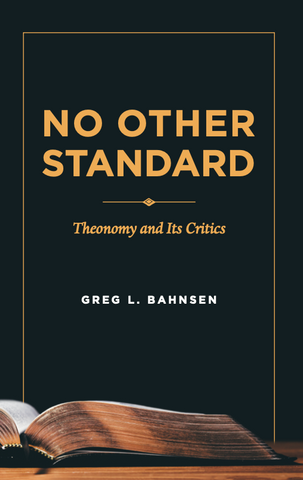Gary deals with an argument making the rounds on social media about Biblical Law. He points out that it’s very similar to the “borrowed capital” argument that atheists rely on to make their own case.
Scripture does not present the law-covenant as fundamentally opposed to the grace of the New Covenant. For example, consider Hebrews 3-4. According to New Testament theology, why was God displeased with the Israelites so that they could not enter the promised land? The answer is that they were disobedient (3:18), but this is the same as the answer that they were lacking faith (3:19)! They had gospel preached to them, even as we do (4:2), but they failed to enter into God’s promised provision because they failed to have faith (4:2)—which is just to say, they were guilty of disobedience (4:6)! You cannot pit faith and obedience against each other in the Old Covenant; they are different sides of the same coin—even as in the New Covenant (James 2:14-26). Paul asks quite incredulously, “Is the law then against the promises of God?” Should the grace of the Abrahamic covenant be seen as contradicted by the law revealed by Moses? The Apostle’s answer is “May it never be!” (Galatians 3:21).
The law was never intended to be a way of works-righteousness, as Paul goes on to say. By her self-righteous effort to gain merit and favor before God by obedience, Israel “did not arrive at the law” at all! (Romans 9:31) And why not? “Because they sought [righteousness] not by faith, but as it were by works” (v. 32). Paul knew from his personal experience that he needed to die to legalism, to the use of the law as a means of merit before God. And how did Paul learn that lesson? Listen to Galatians 2:19. “I through the law died unto the law, that I might live unto God.” It was the law itself which taught Paul not to seek righteousness and God’s acceptance through law-works!
“Law” and “Grace” may be tags for different covenantal administrations (viz., Old and New Covenants), but they both were administrations of God’s grace as the way of acceptance before Him. Paul very clearly included the Mosaic covenant—the “law” covenant, which erected a wall between Jews and Gentiles (alienating the uncircumcision from “the commonwealth of Israel”)—as part of “the covenants of promise” (Ephesians 2:12).

No Other Standard
No Other Standard is Dr. Bahnsen’s response to various books, articles, and other critiques that have circulated over the years. Bahnsen skillfully takes his critics’ arguments apart, showing that they have either misrepresented his position or misrepresented the Bible. Line by line, point by point, he shows that they have not understood his arguments and have also not understood the vulnerability of their own logical and theological positions. Joe Louis once said of an ill-fated scheduled opponent in the ring, “He can run, but he can’t hide.” Likewise, Bahnsen’s critics. No Other Standard corners them all, and one by one, floors them.
Buy NowGary deals with an argument making the rounds on social media about Biblical Law. In keeping with the “carnal Christian” debate that was popular in the 1990s, a new group of Christians are positing a similar argument about Old Testament law being “done away with” by Jesus on the cross. Every “position” has some sort of law, and this one is no different. As Gary points out, it’s very similar to the “borrowed capital” argument that atheists rely on to make their own case.

